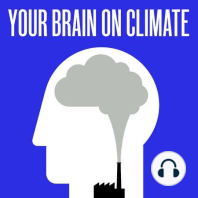43 min listen
Play, with Lucy Hawthorne
ratings:
Length:
44 minutes
Released:
Dec 15, 2022
Format:
Podcast episode
Description
We play when we're kids to try new things and learn how the world works, and when we think no-one's looking we do it as adults too. Play's important for our development and so you should probably do it or you'll turn out a wrong'un. But Dave's guest today says play is also a way to smash the Very Serious Rules of how to think about climate change - rules the following of which demonstrably are not working. If play = creativity, and creativity = necessary, is it time to lark about more in the name of saving the planet? Joining Dave this episode is Lucy Hawthorne. She's a creativity facilitator who uses Lego - yes, Lego - to teach adults a thing or two about how to think sideways about climate change and what to do about it. She even sent some in the post to Dave. Find Lucy at Catalysts Club and Climate Play. Owl noise: Find out more about Stuart Brown's eight categories of play.Your Brain on Climate is a podcast about human psychology vs the climate crisis: what we think, why we think it, and how it all adds up to a planet-sized emergency. Contact the show: @brainclimate on Twitter, or hello@yourbrainonclimate.com. Support the show on Patreon: www.patreon.com/yourbrainonclimate. The show is hosted by me, Dave Powell, who you can find @powellds on Twitter. Original music by me, and I twiddle all the production knobs too. Show logo by Arthur Stovell at www.designbymondial.com.
Released:
Dec 15, 2022
Format:
Podcast episode
Titles in the series (29)
Grief, with Ro Randall by Your Brain On Climate
